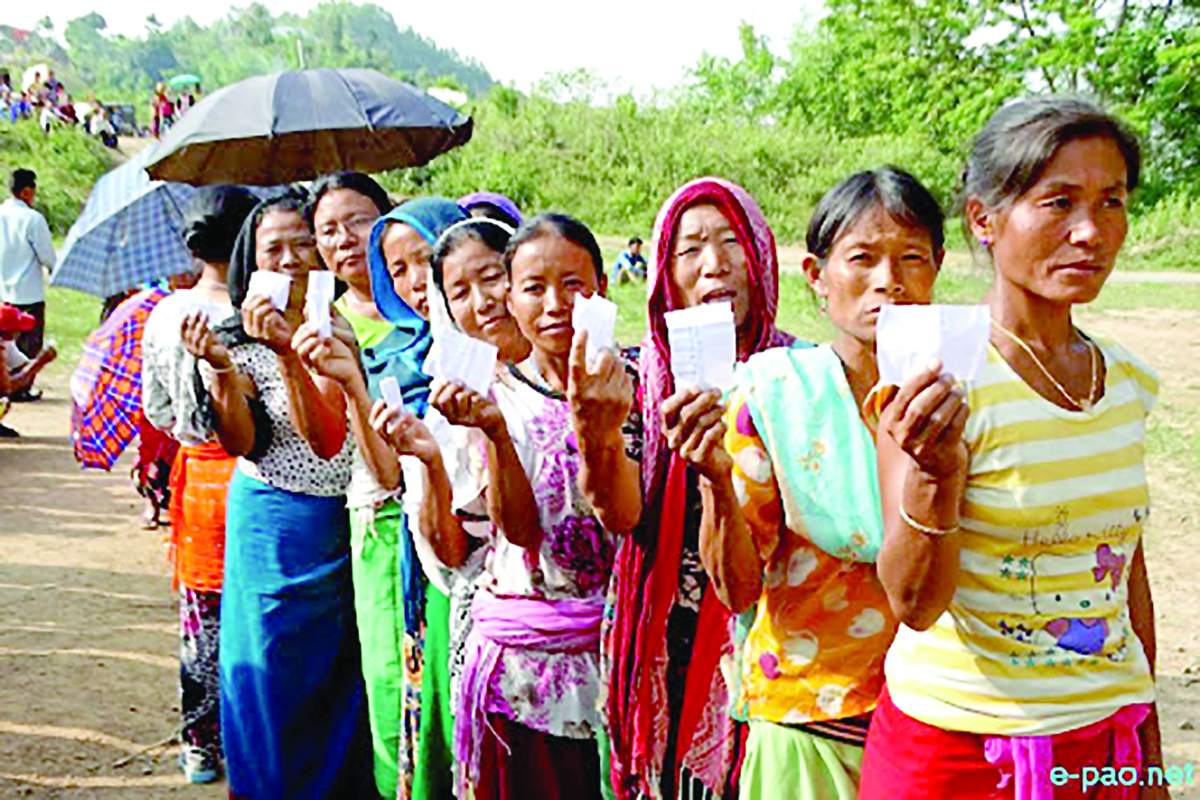A collective of 18 Members of the Legislative Assembly from the hill areas of Manipur, including the chairman of the Hill Areas Committee, drafted “The Manipur (Hill Areas) Autonomous District Councils Bill, 2021” to be introduced in the 13th session of the 11th Manipur Legislative Assembly as a private member bill.
The HAC claims that despite several amendments to the Manipur (Hill Areas) District Councils Act, 1971, there are “deficiencies which resulted in disproportionate development between the areas of the hills and valley of Manipur over the years”. In order to address this imbalance, the present bill “seeks to repeal and replace” the 1971 Act “in order to provide more autonomy to the Hill Areas Committee and the District Councils”. It also seeks to increase the number of constituencies of the autonomous district councils to 31, out of which three members will be nominated, and one-fourth seats will be reserved for socio-economically backward and need-based geographical areas within the respective ADCs. The bill also seeks to create a Hill Areas Secretariat to ensure coordination between the ADCs, for reviewing and monitoring all projects and programmes undertaken, and to also manage budgetary allocation to the hill areas.
After expressing an intention for introducing the bill in the current session of the Assembly, a debate between the government and members of the HAC emerged wherein the former blamed the latter for trying to divide a small state into two power centres and not following “proper channels”. The HAC, however, defended itself by saying that according to the law, it can pass resolutions and recommend to the state government for legislation on Scheduled matters of the hills.
One thing is clear, the government, which is controlled by majority Meitei legislators, is reluctant to share power. For those in the valley of Manipur, the voices of the hills represent aspiring separate states that would break their hegemony and eventually lead to the creation of Kukiland and Southern Nagalim. Despite the bill seeking to establish “internal autonomy” within the state for hill communities, the majority is reluctant to part with the hegemonic power that it has enjoyed for half a century now.
An astute observer would reckon that majoritarianism is at full play and Manipur has fallen into the ethnocracy trap. The words of Robert Reid, who was the Governor of Assam from 1937-1942, will not be totally unfounded, “History shows that the Manipuri cannot and will not give the hills an administration of the standard to which they are both entitled and now accustomed and it can only be maintained by the control now exercised”.
Patriarchal bill
A brief assessment of the bill points to several shortcomings. Even almost three decades after the passage of a largely inclusive legislation like the 73rd Amendment Act in 1992, which gives constitutional status to panchayats, the proposed autonomous councils bill ignores women representation and fails to use gender inclusive terms.
In January 2019, the Union Cabinet decided to increase the financial and executive powers of autonomous councils in the North-east, which were formed under the Sixth Schedule of the Constitution through a Constitutional Amendment. The 125th Amendment Bill introduced on 6 February 2019 in the Rajya Sabha has interesting features including the nomination of not only a specific number of women but also the “unrepresented tribes” by the Governor. Currently, there is no such provision to ensure the nomination of unrepresented tribes as members of ADCs. It is purely the Governor’s discretion on whom to nominate.
In the proposed autonomous councils bill, there is no specific mention of women reservation or nomination, and gender exclusive terms such as “chairman” and “vice-chairman” are also used. They indicate that no woman will occupy such posts. Even after 73 years of Independence, the mindset of legislators is exclusivist and riddles such representative institutions with patriarchy.
Advertisement
No provision for regional councils
The amendment to the Sixth Schedule of the Constitution is long overdue and it would give effect to the autonomy of microscopic minorities, which the 125th Amendment Bill also failed to take note of. Such minority communities are the most neglected and also the least represented in the institutions that were created to serve their interests. Since the Pawi-Lakher Regional Council in Mizoram, no such regional council has been formed under the Sixth Schedule. The basis on which regional councils were formulated seems to be largely forgotten, even though smaller minority groups within new states in the North-east can be accommodated in the relevant existing provisions.
It is a fact that smaller or microscopic minority groups were largely ignored within North-eastern states. In Manipur, Komrem is a nomenclature consisting of the six kindred tribes categorised as Aimol, Kom, Kharam, Chiru, Purum and Koireng in the Constitution. In the 2011 Census of India, their total population was 27,156 people only. These kindred Komrem tribes are scattered across Manipur. Their small and scattered nature of population coupled with their inability to come together under one platform has made them more vulnerable and invisible.
The aspiration for smaller provisions of autonomy, such as regional councils, is not even thought about in mainstream political circles today. According to the lived experiences of microscopic minority groups, besides being linguistically endangered, they continually face socio-political exclusion as they are not able to assert their presence as a distinct ethnic group out of several compulsions.
Taking a cue from the formation of the Chakma Autonomous District Council in Mizoram, which is based not on a compact territorial district but on the ethnic population of Chakmas in the state, regional councils can be formulated for microscopic minorities in Manipur as well as different parts of the North-east. The Koms need a regional council on the lines of the Chakma Autonomous District Council to preserve their language and culture. Besides, there are several minorities in every hill district of Manipur and in every district, regional councils should be formed to empower them.
Sadly, the major tribes, who were once fighting for some form of autonomy, are now unwilling to grant even a little power for self-governance to smaller tribes. The need for regional councils for microscopic groups in the North-east is urgent and requires immediate attention. Such councils can provide an institutional platform and a means for countering the fear of losing one’s unique identity amid aggressive constructivist identities that are much prevalent in the region.
The granting of regional councils need not necessarily stem from a strong agitational demand or even armed movement. It must be established according to the needs of minority groups. As much as the major tribes need a protective mechanism of self-rule, microscopic minority groups need much more to continue existing, and maintain their culture and identity. The proposed bill in Manipur not only ignores the establishment of such smaller councils but totally deletes the provision for the same from the 1971 Act.
Advertisement
Advertisement











